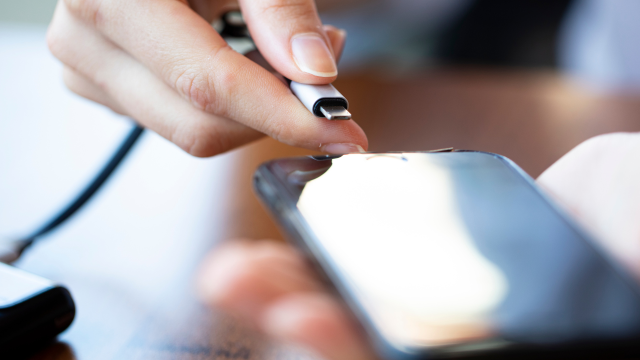The ACCC is raising the alarm on the dangers of lithium-ion battery fires and is urging consumers to properly store such batteries to prevent any harm.
Back in December, as a previous version of this article reported, the ACCC opened submissions for a paper on the dangers of lithium-ion batteries.
Now, the ACCC has published a report on the commonly-used battery type, which appears in phones, laptops, electric cars, and e-bikes, among many other popular consumer electronics. The consumer watchdog body is worried about lithium-ion fire incidents occurring more frequently, and while it says that incidents are still rare, lithium-ion battery explosions and fires are no joke. If stored, charged, or disposed of incorrectly, a serious fire could break out due to overheating.
The ACCC said that one Australian has died due to a lithium-ion fire, and that over the past five years, it has received 231 reports relating to the battery technology.
“We are concerned by increasing reports of lithium-ion battery fires resulting in property damage and serious injuries, including burns, chemical exposure and smoke inhalation,” ACCC Deputy Chair Catriona Lowe said.
“Managing lithium-ion battery safety is complex, and government, industry and consumers must tackle the challenge together. Our report makes recommendations to better protect consumers, and includes practical advice to reduce the risks associated with these batteries.”
Lithium-ion batteries, under the wrong conditions, can overheat or explode. This can obviously lead to serious injuries and has, historically, been one of the greatest risks associated with most battery-electric consumer devices. Fires can occur when the batteries are exposed to heat or moisture or are crushed (such as in a garbage truck). Fires can also be caused by the technology overheating (which is why you should never put an electronic device under a pillow).
Batteries are a reoccurring focus for the consumer watchdog body. In July, the ACCC raised the alarm on button battery-powered products that didn’t have secure compartments, mostly so that children couldn’t access the batteries. Over the course of 2022, the ACCC warned home solar users about specific LG home battery models that have a fire risk (and if you’re not sure if you have one of those models, you should absolutely check).
To see lithium-ion batteries at large come into focus for the Commission is by no means strange, so what does the ACCC want consumers to do? The body provided the following tips that folks should follow:
- Monitor charging times of lithium-ion products and disconnect products from chargers once they are fully charged. Consider setting timers as a reminder to unplug products
- Keep lithium-ion batteries out of household garbage or recycling bins and kerbside hard waste collections
- Charge lithium-ion batteries and products away from combustible materials such as beds, sofas or carpet
- Store batteries and lithium-ion products in cool, dry places and out of direct sunlight, including while charging
- Do not use batteries, products or chargers that are overheating or showing signs of failure such as swelling, leaking or venting gas
- Check the charger you are using is suitable for the product being charged
- Allow time for batteries to cool after use and before charging
- In the event of a fire, consumers should contact 000 immediately. For more information on what to do in case of fire or explosion contact your state or territory fire department.
The ACCC isn’t saying that we should stop using lithium-ion batteries altogether – in fact, it said that the battery technology is “integral to achieving Australia’s transition to net zero emissions and a circular economy.” The body estimates that, by 2026, more than 33 per cent of household electronics will be powered with a lithium-ion battery, which underscores why we should be safer with them, and why we should become familiar with how to dispose of them correctly. The ACCC is proposing greater data collection practices on lithium-ion fire incidents, suspecting that such fires are underreported.
“We recommend that government and industry continue to develop solutions to ensure lithium-ion batteries are safely designed and can be sustainably disposed,” Lowe added.
“Consumers should keep lithium-ion batteries out of household rubbish and check recyclemate.com.au and bcycle.com.au for information about safe disposal.”
You can read the report now on the ACCC website.
Image: Eda Hoyman/iStock
This article has been updated since it was originally published.
